EUTERP newsletter issue 12 - October 2016
ENETRAP III European guidance on the implementation of the requirements of the Euratom BSS with respect to education and training for RPE and RPO
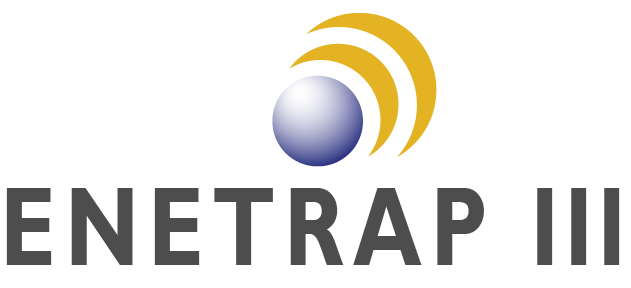 The EU requirements regarding E&T of RPEs and RPOs may appear quite clear, however varying approaches in implementation on the national level are observed. The ENETRAP projects have made several studies related to this matter with the aim of reaching a common European approach. The progress of the work was presented and discussed with the stakeholders on a regular basis in the EUTERP Workshops and various other occasions. As a result the concepts of RPE and RPO were taken up in the revised Euratom BSS (2013/59/Euratom). Member States must now translate the goals and requirements into their national legislation before February 2018. To guide this implementation, a document called “European guidance on the implementation of the requirements of the Euratom BSS with respect to education and training for RPE and RPO” was produced in the frame of the ENETRAP III project.
The EU requirements regarding E&T of RPEs and RPOs may appear quite clear, however varying approaches in implementation on the national level are observed. The ENETRAP projects have made several studies related to this matter with the aim of reaching a common European approach. The progress of the work was presented and discussed with the stakeholders on a regular basis in the EUTERP Workshops and various other occasions. As a result the concepts of RPE and RPO were taken up in the revised Euratom BSS (2013/59/Euratom). Member States must now translate the goals and requirements into their national legislation before February 2018. To guide this implementation, a document called “European guidance on the implementation of the requirements of the Euratom BSS with respect to education and training for RPE and RPO” was produced in the frame of the ENETRAP III project.
EUTERP and RPW 2016
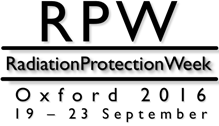 RPW2016 brought together scientists working in European radiation protection research platforms and networks to discuss latest developments and share experiences. EUTERP was asked to organise and chair a session on Education and training in radiation protection: from researcher to practitioner.
RPW2016 brought together scientists working in European radiation protection research platforms and networks to discuss latest developments and share experiences. EUTERP was asked to organise and chair a session on Education and training in radiation protection: from researcher to practitioner.Check our EUTERP website for future updates; a link will be made available to these presentations.

EUTERP newsfeeds
From April this year, we have been adding topical daily news feeds to the EUTERP home page. Since May we have added a LinkedIn button to facilitate the onward spread of news feeds and it is noticeable that the web page views increase when this facility is used. However, in analysing the web site visits, it was decided with effect from July to drop the addition of news feeds at weekends since the views at weekends are not significant. Week-day visits amount to about 120 per month.
We now need your views as to the utility of having daily news feeds and whether these are providing you with information that you find interesting. Please take 5 minutes of your precious time to complete the survey’s seven questions, the result of which will be used to review the EUTERP information feeds.
EUTERP Forum
 The EUTERP Board feels that the best way to provide a forum for our Associates and NCPs is to use the EUTERP Foundation Group via LinkedIn. If you would like to join the EUTERP E&T community, please join the EUTERP Foundation Group and feel free to start a discussion on any topic. For example the next EUTERP Workshop will be in 2019 – post implementation of the BSS in the Member States – please tell us what questions you would like to have answered?
The EUTERP Board feels that the best way to provide a forum for our Associates and NCPs is to use the EUTERP Foundation Group via LinkedIn. If you would like to join the EUTERP E&T community, please join the EUTERP Foundation Group and feel free to start a discussion on any topic. For example the next EUTERP Workshop will be in 2019 – post implementation of the BSS in the Member States – please tell us what questions you would like to have answered?
EUTERP Associates
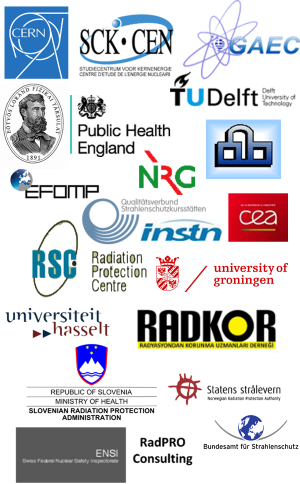 We are delighted to have 20 Associates currently within the EUTERP but would like more of you to join us. There are so many benefits, as listed on the EUTERP web page regarding Associates, please look at these and consider the considerable advantages for your society to join us – it is exceptionally good value!
We are delighted to have 20 Associates currently within the EUTERP but would like more of you to join us. There are so many benefits, as listed on the EUTERP web page regarding Associates, please look at these and consider the considerable advantages for your society to join us – it is exceptionally good value!
EUTERP NCPs
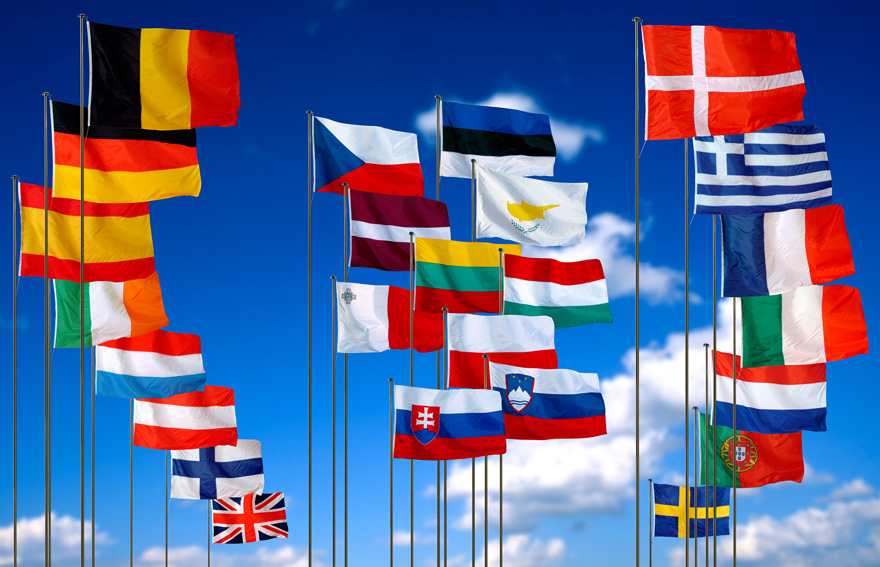 There is much potential for increasing the information about radiation protection E&T in the Member States of the EU in the National Pages on the EUTERP website; noting that we also have NCPs from other European countries. It may be that there is some reluctance in providing information as you may feel that translation from your own language into English is necessary. However, please do not hesitate to send us information in your own language; this will be easier to include on the website if you use can use Microsoft Word, but pdf files can also be used if this is more convenient for you. The EUTERP Website should be THE place to go to find such information from all Member States. One criteria for the free movement of radiation protection professionals is knowledge of the language and laws of the country in which they are seeking employment, so including this information in the native language on the EUTERP website is more than acceptable.
There is much potential for increasing the information about radiation protection E&T in the Member States of the EU in the National Pages on the EUTERP website; noting that we also have NCPs from other European countries. It may be that there is some reluctance in providing information as you may feel that translation from your own language into English is necessary. However, please do not hesitate to send us information in your own language; this will be easier to include on the website if you use can use Microsoft Word, but pdf files can also be used if this is more convenient for you. The EUTERP Website should be THE place to go to find such information from all Member States. One criteria for the free movement of radiation protection professionals is knowledge of the language and laws of the country in which they are seeking employment, so including this information in the native language on the EUTERP website is more than acceptable.
Incidentally, some of the EU Member States have somewhat dormant NCPs. If you feel that your country needs more support in implementing E&T for its RPEs, RPOs and radiation workers in general, or even information for the general public, please get in touch so that we can bolster efforts in your region.
EUTERP Library
 The EUTERP library has been expanded significantly over the last few months. We are constantly looking for new references that should be included so please help us by sending us information about your favourite text books for teaching. If you feel some of the texts listed are “out of date”, it would be helpful to indicate this too. As the library is now rather large we are considering sub-dividing it by topic and would appreciate your comments on the topic areas to be included. Please send your comments to secretary@euterp.eu.
The EUTERP library has been expanded significantly over the last few months. We are constantly looking for new references that should be included so please help us by sending us information about your favourite text books for teaching. If you feel some of the texts listed are “out of date”, it would be helpful to indicate this too. As the library is now rather large we are considering sub-dividing it by topic and would appreciate your comments on the topic areas to be included. Please send your comments to secretary@euterp.eu.
Recommendations from the project EAGLE:
Move closer to a citizen-centred communication
Enhancing education, training and communication processes
To identify and disseminate good practices in information and communication processes related to ionizing radiation, the consortium reviewed national and international data, tools and methods as well as institutional work. This in turn identified education, information and communication needs and coordination possibilities at the European level. The lessons learned from the nuclear accident in Fukushima also provided valuable input. The main goal of the project was to enhance public understanding of ionizing radiation and to facilitate a coordinated communication approach.
In addition, EAGLE fostered a move towards the ideal of citizen-centered communication, including a participative component. The project brought together representatives of nuclear actors, users of ionizing radiation, authorities, mass and social media, and informed civil society. The project website contains the scientific reports and records of many rich interactions.
Recommendations
In the final stage of the project, the EAGLE partners wrote a series of recommendations intended to help European actors in the field of ionizing radiation to move closer to a citizen-centred communication process, supporting better informed decision-making about ionizing radiation risks (IRR). These recommendations are based on the results from the EAGLE activities conducted throughout the entire project duration. They integrate EAGLE stakeholders’ feedback and have been agreed by the EAGLE stakeholders, including the EAGLE advisory board. In addition, most of the work was peer-reviewed and published in different scientific journals. The recommendations are mostly addressed to information-source institutions including schools (official communicators), and thereby reflect a standard of quality that other communication actors—media and civil society representatives—can expect. The recommendations can be found on the project website.
View selected recommendations of specific interest to the EUTERP community.
In conclusion, there is much positive work to be done in education and training of professionals and workers for them to be responsive to the needs of the wider civil society; trainers, EUTERP Associates and EUTERP NCPs would be wise to take note of these recommendations and adopt them as fully as possible.
EUTEMPE-RX training modules organised again
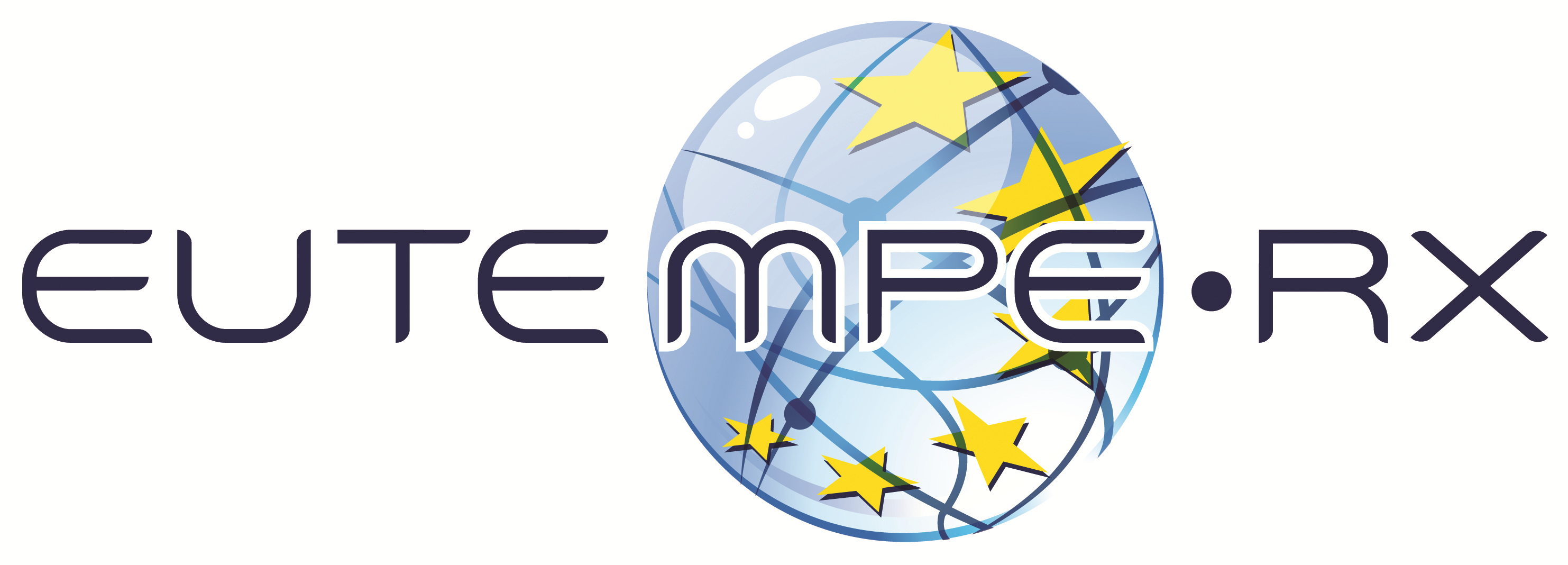 The EUTEMPE-RX project ensures state-of-the-art education and training for medical physicists aspiring to Medical Physics Expert (MPE) status in diagnostic and interventional radiology.
The EUTEMPE-RX project ensures state-of-the-art education and training for medical physicists aspiring to Medical Physics Expert (MPE) status in diagnostic and interventional radiology.
The EUTEMPE-RX consortium delivers 12 modules, that have already been successfully delivered once. Following requests by the previous participants, the consortium partners in their meeting in Leuven, March 20 – 21, 2016, agreed to repeat their course modules a second time.
You can find the dates of the second round of modules on their website. Each module can take a certain maximum number of participants and acceptance is on a first come first served basis. Ensure your place and apply here today !
ESMPE medical physics education and training events
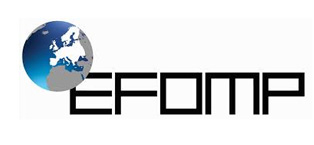 The ESMPE organize medical physics education and training events specifically targeted towards Medical Physicists who are already MPEs or would like to achieve MPE status.
The ESMPE organize medical physics education and training events specifically targeted towards Medical Physicists who are already MPEs or would like to achieve MPE status.
These events are open to all European Medical Physicists and, in the future, they will be accredited by an independent body to ensure that they are at the required educational level, i.e., Level 8 of the European Qualifications Framework.
The attendance is limited to 50 or 40 places to guarantee the possibility of individual interaction between lectures and attendees. The next ESMPE for the MPE in radiotherapy will be in January 2017 (flyer).
Upcoming events
- 6th International Conference on Education and Training in Radiological Protection (ETRAP 2017)
May 30 - June 2, 2017 in Valencia, Spain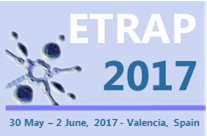 ETRAP 2017 provides a forum for decision makers, regulators, educational and training providers and practitioners, researchers, radiation protection experts and persons from international organizations to discuss the current status of education and training in radiation protection. The conference aims to identify trends and good practices in the area while looking to the future so that society can continue to benefit from the many uses of ionizing radiation.
ETRAP 2017 provides a forum for decision makers, regulators, educational and training providers and practitioners, researchers, radiation protection experts and persons from international organizations to discuss the current status of education and training in radiation protection. The conference aims to identify trends and good practices in the area while looking to the future so that society can continue to benefit from the many uses of ionizing radiation.
The ETRAP 2017 Programme Committee is now calling for both oral and poster presentations on the following topics:- Latest developments in education and training in radiation protection
- Education and training needs of young professionals working in radiation protection
- Long term impact of education and training in radiation protection and its sustainability
- Methodology of risk communication - ethics of education and training, trainer responsibilities
- Tools and resources, methodology of training (forms of learning, approaches with different audiences and sectors)
- Need for qualification, certification and accreditation
- Collaborations, networks and platforms: activities and achievements
- Integration of social sciences and humanities in radiation protection education and training
- Outreach activities
Authors are requested to submit their abstract text in English (a minimum of 400 words) through the Abstract Submission System on www.etrap2017.org , not later than 15 January 2017.
EUTERP Associates can ask for a contribution for the registration fee by applying here.
 5th European IRPA Congress
5th European IRPA Congress
Encouraging Sustainability in Radiation Protection
June 4-8, 2018The Hague, The NetherlandsSince 2002, Radiation Protection professionals from all over Europe and beyond have met every four years at regional European IRPA congresses. The Dutch Society for Radiation Protection (NVS) is pleased to host the next congress in this series. The 5th European IRPA Congress is scheduled to take place from 4th to 8th June, 2018 in the wonderful city of The Hague, The Netherlands. With the theme “Encouraging Sustainability in Radiation Protection”, the congress will focus on the various aspects needed to make sure that we have, and will continue to have, adequate equipment, staff and resources to protect human health and our environment against the adverse effects of ionising and non-ionising radiation.
Read all about this congress and the role of EUTERP on our website.
- 8th EANNORM Workshop
December 5-7, 2016
Stockholm, Sweden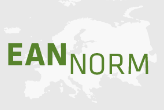 The key objective of the Workshop is to gather as many stakeholders as possible whose work involves naturally occurring radioactive material (NORM), and not only give them the opportunity to discuss and exchange experiences regarding transposition and implementation of the new EU BSS regarding natural radiation sources and industrial NORM activities, but also highlight the latest research in the field.
The key objective of the Workshop is to gather as many stakeholders as possible whose work involves naturally occurring radioactive material (NORM), and not only give them the opportunity to discuss and exchange experiences regarding transposition and implementation of the new EU BSS regarding natural radiation sources and industrial NORM activities, but also highlight the latest research in the field.
Read more about this workshop on the new website of EANNORM.
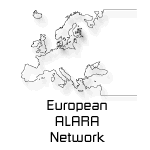 May 15-17, 2017
May 15-17, 2017